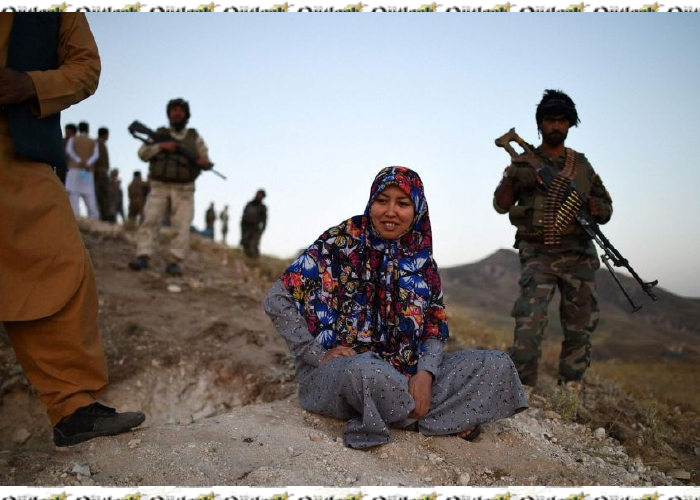CHARKINT - Ms Salima Mazari sits nonchalantly in the front seat of a pickup as it cruises through a rural district of northern Afghanistan; a popular local song belts out from a loudspeaker stuck on top of the vehicle.
Ms Mazari, a female district governor in male-dominated Afghanistan, is on a mission - recruiting men to fight the Taleban.
"Homeland... I sacrifice my life for you," the song goes - and, these days, she is asking her constituents to do just that.
Taleban militants have swept through much of rural Afghanistan since early May, when United States President Joe Biden called time on America's longest war and ordered his troops home.
Life has changed little in many areas the insurgents have captured, but in Charkint - the ruggedly remote district of mountains and valleys that Ms Mazari governs, about an hour south of Mazar-i-Sharif in Balkh province - the stakes are higher.
The Taleban fighters are "exactly the ones who trample on human rights", she said.
Under Taleban rule, women and girls were denied education and employment, but even after the militants' downfall in 2001, attitudes have changed slowly.
"Socially, people were not ready to accept a female leader," Ms Mazari told AFP, her head modestly covered with a butterfly-patterned shawl, her eyes hidden behind oversized sunglasses.
Ms Mazari is also a member of the Hazara community - most of whom are Shi'ite Muslims, who the Sunni Taleban consider a heretical sect.
They have been regularly targeted by the Taleban and fighters from the Islamic State in Iraq and Syria, including an attack on a school in the capital in May that killed more than 80 girls.
Half the district Ms Mazari nominally governs is already under Taleban control, so she spends a lot of time recruiting fighters to defend the rest.
Hundreds of locals - including farmers, shepherds and labourers - have joined her cause, at enormous cost.
"Our people didn't have guns but they went and sold their cows, sheep and even their land to buy weapons," Ms Mazari said.
"They are on the front line every day and night without getting any kind of credit or salary."
District police chief Sayed Nazir believes the only reason the Taleban has not taken over is because of this local resistance.
"Our achievements are due to our people's support," he told AFP, still smarting from a leg wound that he received recently fighting the Taleban.
Ms Mazari has so far recruited some 600 locals to supplement the conventional security forces in the district - including Sayed Munawar, 53, who took up arms after 20 years of farming.
"We used to be craftsmen and workers until they attacked our villages," he told AFP at an outpost manned by police and local volunteers.
"They took a nearby village and raided their carpets and goods... we were forced to buy weapons and ammunition."
Mr Faiz Mohammad, 21, is another volunteer - putting his political science studies on hold to fight the Taleban.
He had not seen combat until three months ago, but since then has fought three battles.
"The heaviest fight was a few nights ago when we had to repel seven attacks," he told AFP, dressed in civvies and listening to mournful Hazara music on a cheap Chinese-made cellphone.
In Charkint, villagers still have bad memories of life under the Taleban before the hardline Islamic regime was toppled by the 2001 US-led invasion.
And Governor Mazari knows that if the Taleban soldiers return, they would never tolerate a woman in such a leadership position.
"Women would be banned from educational opportunities and our youth would be deprived of employment," she said, leading a meeting with militia commanders at her office, preparing for the next fight. (AFP)
Home » Afghanistan » Afghan Woman Governor Recruits Anti-Taleban Militia
Afghan Woman Governor Recruits Anti-Taleban Militia

